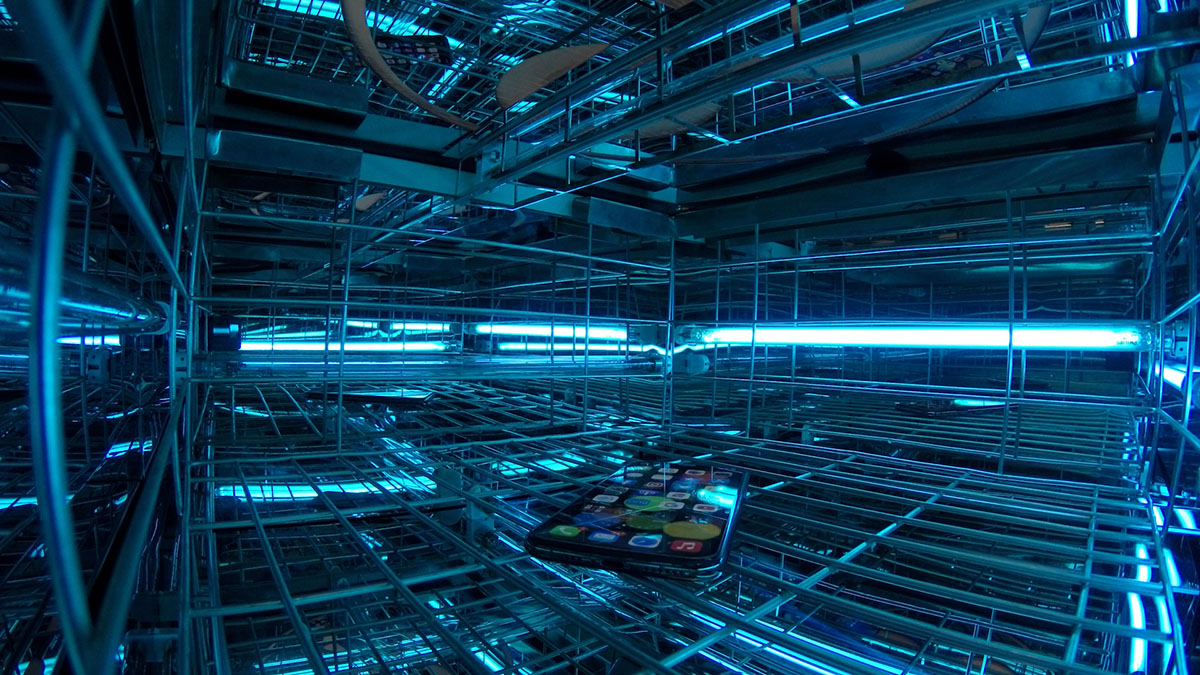Tar Heels meet a pandemic need in UV device
Created and developed by Carolina students to fulfill a need during the pandemic, Ultraloop devices use high-frequency ultraviolet light to kill bacteria on small, everyday objects. The machines were recently rolled out on Carolina's campus.
Press the play button above to watch the video
Sprays and wet wipes are what come to mind when it comes to cleaning smartphones and other electronic devices, but a group of Carolina students has come up with a way to sanitize your things without a drop of liquid.
The technology is called Ultraloop, and it’s being rolled out in several locations on campus this fall. Ultraloop uses high-frequency ultraviolet light to kill bacteria on small, everyday objects such as smartphones, wallets, keys and water bottles. The UV-C lights are contained in a metal box that resembles a computer printer, with a hinged lid on top.
“Open the lid, put your stuff in and then press the button [to start the device],” said Jared Porter, a Carolina sophomore and Ultraloop’s chief operations officer. “Thirty seconds later, you have everything sanitized.”
The company started at the beginning of the pandemic when Carolina junior and Ultraloop founder and CEO Aditya Bhatt began prototyping while home in India in 2020.
“It took about two, two-and-a-half months to make the first prototype,” Bhatt said. “Our design is very unique. It’s patented to ensure 360-sanitization, so we don’t miss any angles, any blind spots.”
Ultraloop’s staff consists entirely of Carolina students, with sophomore Daniel Sheyko and junior Tom Morioka joining Porter and Bhatt to complete the Ultraloop team.
The devices are now at several locations on campus, including Davis Library, the Carolina Union, the Genome Sciences building and Cobb Residence Hall.
Knowing that Ultraloop was designed by her fellow students makes senior Ruth Fetaw even more grateful for the opportunity to keep her devices germ-free.
“Students know what students need,” Fetaw said. “I think this is a prime example of that, and people just wanting to take care of each other, make people feel more comfortable and just allowing people to have a better Carolina experience.”





